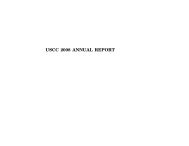e-commerce@its.best.uk - Fatal System Error
e-commerce@its.best.uk - Fatal System Error
e-commerce@its.best.uk - Fatal System Error
- No tags were found...
Create successful ePaper yourself
Turn your PDF publications into a flip-book with our unique Google optimized e-Paper software.
7.31 The UK taxes non-residents on their UKincome. But, where the UK has a treaty withthe person’s country of residence, it onlyexercises its right to tax if the person has apermanent establishment here as defined inthe tax treaty. Broadly speaking, “permanentestablishment” means a fixed place ofbusiness. The application of the permanentestablishment concept to e-commerce needsclarifying. In particular, there is uncertaintyabout whether a Web site on a server is apermanent establishment and, if so, in whatcircumstances.7.32 This issue affects both the foreign taxesUK businesses have to pay abroad and theUK taxes foreign businesses have to pay inthis country. It is therefore important toresolve both – to secure national tax revenuesand provide a clear tax framework withinwhich businesses can operate. And the UKis actively participating in the OECD workon this issue that is due to be completed byMarch 2000. The UK should continue to seekinternational agreement on the way forwardwithin this timescale.Recommendation 7.8: the UK shouldcontinue to play a leading role in OECDwork to review the application oftransfer pricing rules to e-commerceand to develop rules for attributingincome to permanent establishments.7.33 E-commerce is likely to increase thecomplexity of arrangements relevant to thedetermination of the appropriate prices fortransactions between associated persons indifferent jurisdictions for direct tax purposes.It could become more difficult to identifywhere relevant functions have beenperformed, to quantify the value added inrelation to business conducted over theInternet and to establish where any suchvalue has been added. Similar problems arisein relation to the attribution of profits topermanent establishments.7.34 The UK chairs an OECD working partyon transfer pricing and is activelycontributing to work being done by theOECD on the attribution of profits topermanent establishments. The OECD isclosely monitoring developments ine-commerce to ensure it can move swiftlyto update/modify guidance on transferpricing/attribution rules as and when thisbecomes appropriate.Recommendation 7.9: the UK shouldidentify effective mechanisms for VATcollection in respect of consumerpurchases of on-line items fromoutside the EU.7.35 Current VAT rules do not provide forcollection of tax on digital items purchasedby private consumers from outside the EU.Items such as software, CDs and videosdownloaded on-line therefore escape VAT.At present it is believed that the volume ofsuch consumption is not great. The goodsand services concerned account, in any case,for a relatively small proportion of consumers’expenditure. So the threat to the revenueyield from VAT is not presently large. It is,however, likely to grow, especially whenincreased bandwidth encourages this modelof distribution. Part of the work being carriedout in the OECD by the UK and othercountries is aimed at resolving this issue.7.36 The UK has encouraged the EuropeanCommission to bring forward legislativeproposals to bring the ‘place of taxation’rules up to date generally and to bring theminto line with the Ottawa conclusions onVAT (see box 7.3). By doing this, Europeantraders would be safeguarded from unfair taxcompetition such as that which adverselyaffected European telecoms companies untila similar legislative change was introducedin 1997.7.37 But even if the legislative gap is filled,there remain important practical questionsabout how the tax would actually becollected. One option is some form ofautomated revenue collection which Customsand Excise is exploring with interested partiessuch as infrastructure providers and softwaredevelopers. Customs and Excise need tocontinue to investigate, with EU memberstates and other countries, as well asbusiness, what would be the most effectivemechanisms for VAT collection on on-linepurchases from outside the EU by privateconsumers. It is important that thesemechanisms are developed alongside thebusiness models to ensure that they areeffective without being burdensome. This islikely to be a process which will extend atleast until the end of the OECD’s two-yearprogramme of work established at Ottawa.E-<strong>commerce@its</strong>.<strong>best</strong>.<strong>uk</strong>37















